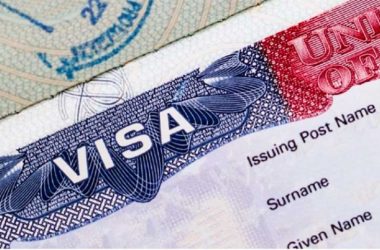
TODAY the world is witnessing an interesting period in human history, with developing nations in the Global South assuming their right to rewrite the world order to one more reflection of themselves and directly addressing their needs.
This is most reflected in the BRICS alliance – formed by Brazil, Russia, India, China and South Africa on June 16, 2009 – whose figures tell impressive stories.
Together, BRICS members represent 45% of the world’s population and 35% of the global economy.
The original five are also members of the G-20, with a combined GDP of US $28 trillion (about 27% of the gross world product), a total GDP (PPP) of around US $65 trillion (33% of global GDP PPP) and an estimated US $5.2 trillion in combined foreign reserves (as of 2024).
The combined BRICS GDP stands at US $60 trillion they have a 35% share of the world’s GDP, while the G-7 has 30%.
Now joined by Iran, Egypt, Ethiopia and the United Arab Emirates (UAE), BRICS is truly a new global powerhouse, with a growing list (now at 30+ nations) — big and small, rich and poor and on all continents – have also signalled interest membership.
Nations of the Global North — USA, European Union (EU), North Atlantic Treaty Organization (NATO) and G-7 – are shivering up their spines about distinct and not-too-distant possibilities already unfolding.
Together and separately, they’re particularly concerned, even terrified, that Turkey – a NATO member with one of the most powerful armies in Europe, but which was given the royal run-around by Brussels for decades – is also showing interest in cementing concrete ties with BRICS.
With over 20 leaders attending the 2024 BRICS Summit in Russia – UN Secretary-General Antonio Guterres and North Korea’s Kim Jong-un included – it was clear the US and UK-led sanctions against Russia over Ukraine have been largely ineffective after two years.
The West is also riled up by the demonstrated ability and willingness of the BRICS nations to pool their resources and develop their own trade and business mechanisms, including a unique payments system for mutual trade, independently bypassing the SWIFT Code that ties international trade to US Dollars.
Russia’s President Vladimir Putin – Europe’s longest-serving leader – addressed the world on everything from Russia’s determination to press on with its stated global goals, Ukraine, the US Presidential Election race and Russia’s right to activate military and defence agreements with any ally.
China’s President Xi Jinping, South Africa’s President Cyril Ramaphosa, and India’s Prime Minister Narendra Modi shared the stage in Russia with host President Putin, while Brazil’s President Luis Ignacio ‘Lula’ Da Silva attended online.
The BRICS nations have the mortar to build the concrete and more friendly new global human order they preach and are practically working towards.
China continues evolving as the world’s innovative science and technology factory and is achieving annual positive growth targets of an average of 5% for 2024, the latest figures also confirming a likely 5.9% growth this year.
The BRICS’ New Development Bank (NDB) led by former Brazil President Dilma Youssef –is offering more attractive and less-costly, prudent and modest loan terms than ever offered to developing nations by the US-controlled World Bank and EU-controlled International Monetary Fund (IMF).
They can now call better shots at global negotiating tables, but the BRICS alliance isn’t just a smart amalgamation of like-minded governments and leaders.
Instead, it grew out of the inevitable result of the forceful accumulation of accelerated crises and contradictions facing Humanity and Planet Earth in the 21st Century.
The old unipolar and bipolar global orders defined by the nations that built empires off Native Genocide, Colonialism and Slavery are crumbling – and very fast.
On the new road: China continues to share leadership with humility, India continues charting its own course with friends everywhere, South Africa has successfully pursued Israel at the highest world courts and while Brazil is trotting along confidently and carefully, Russia sticks two warning fingers at nations arming Ukraine to (try to) win a lost war.
The US election result won’t change the status quo in terms of American support for Israel and Ukraine, but next week’s Commonwealth Summit in Samoa will highlight another new contradiction haunting the UK and other European states (as well as the USA): the call by Caribbean Community (CARICOM) nations for Reparations from the UK and EU member-states for Slavery and Native Genocide.
UK Prime Minister Sir Keith Starmer faces a revolt by Caribbean and African nations that demanded the Reparations issue be tabled and discussed, never mind not being on the official agenda prepared in London.
And on the last day of their royal tour to Australia, the royal couple (King Charles and Queen-Consort Camilla) were publicly reminded by a senator that “Australia is not yours…”
But while the world is watching the unfolding political theatrics with bated breath, African and Asian, Indo and Pacific, European, Latin American and Caribbean nations, including small island developing states (SIDS), are working together to address the common problems, including compensation by the North to the South for Loss and Damage from Climate Change.
The views naturally continue to differ over what the BRICS can or may not do, but there’s no doubt this new global entity will significantly change the script and redefine the approaches to accelerating the fulfilment of the new global human, economic, social, political and development orders envisaged by the UN’s Sustainable Development Goals (SDGs), also reflected in the charters of the G-77+China, African Union (AU), Non-Aligned Movement (NAM), Community of Latin American and Caribbean States (CELAC), the Caribbean Community (CARICOM) and the Organization of Eastern Caribbean States (OECS).
Holding on to the old order is becoming increasingly unsustainable and with the BRICS outpacing all other traditional forces that historically stifled the growth of poor and developing nations, it’s just a matter of time before the new global reality forces straggling nations to join the rest of the new developing world.













